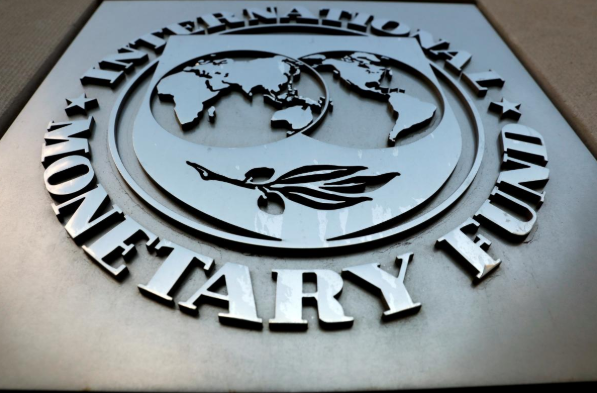
Egyptian officials have asked to postpone a request for a US$4.8 loan from the International Monetary Fund, loan officials said Tuesday, derailing a lengthy process of negotiating that began soon after the uprising against former President Hosni Mubarak in 2011.
“In light of the unfolding developments on the ground, the Egyptian authorities have asked to postpone their request for a Stand-By Arrangement with the IMF,” spokesperson Wafa Amr told Egypt Independent in an emailed statement.
The loan’s delay is the latest in a series of economic surprises this week, after the government took an about-turn on the implementation of a wide-ranging austerity tax plan.
On Sunday, news surfaced that Morsy had signed off on a large restructuring of the country’s tax system just before the weekend, on 6 December, as part of the what officials said were IMF-sanctioned economic reforms.
The extensive changes increased taxes on cigarettes, soft drinks, alcohol, cooking oil and energy. In addition, the new laws would have levied licensing and property taxes, and increased the tax rate for higher-income brackets.
Officials had said the tax plan was part of the economic program Egypt prepared for the IMF during its extended visit to Cairo in early November. The delegation left feeling pleased with the economic program presented, announcing the staff-level agreement and setting 19 December for the final approval.
In late November, Egyptian officials released the economic plan, which they said had been the basis of negotiations. It included clauses on raising cigarette and mass-produced beverage taxes. But the main tenants of the economic plan, of which the primary goal was decreasing the budget deficit from its current 11 percent of the gross domestic product to roughly 8 percent, were the lifting of fuel subsidies and the levying of a value-added tax, which acts like a higher sales tax paid by the end consumer.
The tax laws, then — issued amid political turmoil and protests over the constitution-writing process — came at an unexpected time for even the country’s political and economic analysts.
Reaction to the new laws late Sunday was near-immediate, with some of the loudest objections surprisingly coming from within Morsy’s own party.
“Of course it was a surprise,” Mohamed Gouda, spokesperson for the Freedom and Justice Party’s economic committee, told Egypt Independent. “The Freedom and Justice Party did not know about the tax law, did not agree to the tax law and, unfortunately, was not asked to consult on formation of the tax laws.”
The current government, Gouda said, is technocratic by nature, and chose the easiest way to decrease the government’s ballooning deficit — by raising taxes on the average citizen. He added that the time of the laws’ issuance was not befitting of the country’s current circumstances.
“Now is not the right time for these laws,” he said. “The country is without a parliament.”
By the early hours of Monday, the group posted a statement on its Facebook page asking Prime Minister Hesham Qandil to postpone the plan until a new parliament is formed.
And so, before most citizens even had the chance to hoard their favorite soft drink or cigarette brand, the laws were suspended — at around 2 am Monday.
In the early morning announcement on the president’s official Facebook page, Morsy said the tax plan would not be implemented until a “societal dialogue” had taken place, and the government had consulted experts. Coming quickly after the FJP’s statement of rejection, some sensed the president feeling pressure from FJP officials.
“The president of the republic feels the pulse of the Egyptian street, and he realizes how much the citizen is bearing and struggling from his burdens in this difficult economic period,” the statement read. “The voice of the people is always louder and always has the last word.”
The series of events is befuddling at best, but Morsy’s sneaky signing of the law, apparently without informing his own political party and certainly before alerting the media, may have been by design.
The timing of the decision means it is governed by the 22 November constitutional declaration, which immunized from appeal all presidential decisions until the convening of an elected parliament, according to Heba Morayef, Human Rights Watch’s Egypt director.
The article immunizing the president’s decisions from appeal is valid retroactively only between 21 November and 8 December, she explained, making the taxes laws non-appealable, though the Supreme Constitutional Court may be able to overturn that.
The tax law’s issuance and subsequent suspension, besides confusing consumers, left many experts concerned that the country’s already crippled economy could end up being a casualty of poor policymaking.
Many have little hope for the societal dialogue the president promised, and say they expect to see the same tax plan resurrected after several months, as the government has shown few creative options for tackling the deficit.
“Every time he has said he is going to engage in societal dialogue about something or consult experts on something, all he’s done is gone off and consulted himself,” said Ahmed Naggar, an economist at Al-Ahram Center for Strategic Studies.
Naggar is particularly critical of the tax plan because he said it saddles the country’s large middle class with the greatest burden, particularly in the way it calculates property and real estate taxes.
Others say the whole scenario demonstrates the economic ineptitude that Morsy and his government have demonstrated since he took office.
“I am disappointed that there’s no economic plan to boost confidence, restore growth and create jobs,” said Angus Blair, founder of the Signet Institute, a Cairo-based think tank on economies in the Middle East and North Africa.
He called Morsy’s handling of the economy so far “a haphazard approach,” and said the tax increases leveled largely at the consumer base were in fact counterproductive to achieving growth.
Blair also said he doesn’t see the IMF loan being seriously jeopardized just yet.
He said IMF officials have “an enormous amount of goodwill” when it comes to helping Egypt out, and believes this week’s tax plan had “little to do” with receiving the IMF loan.
But the widespread political unrest and continuing protests over a constitutional referendum scheduled for 15 December could also be a cause for hesitancy at the fund, experts say.
Neil Shearing, chief emerging markets economist at Capital Economics, says negotiations are likely to resume after things calm down, but it’s unlikely the IMF would want to lend to Egypt in the current circumstances.
“With the government’s attempt to defuse the crisis over the weekend by suspending the new presidential powers apparently having failed to mollify the opposition, it was perhaps only a matter of time before discussions with the IMF fell by the wayside,” he said in an emailed statement to Egypt Independent.
This suggests that the fund and the Egyptian government’s official narrative that it was Egypt that asked for the postponement may not be completely true.
“The fund remains in close contact with the authorities, and stands ready to continue supporting Egypt during the ongoing transition and to consult with the authorities on the resumption of discussions regarding the Stand-By Arrangement,” the IMF statement said.
But if the country and its leaders continue on the current path, the loan — which is badly needed to replenish dwindling foreign reserves and greenlight other sources of funding, may be in irreparable peril.
One source, who has been close to the IMF loan negotiations with Egypt, said the tax plan had been implemented to try and shrink the country’s deficit, as per IMF orders. And Morsy’s failure to implement it could have consequences.
“The timing of announcing these measures could have proven very problematic given the political tension, but the cancellation announcement, coupled with the political drama, could risk the approval of the loan soon,” the source said.
For local rights groups and opposition forces that have vocally come out in rejection of the loan, this may actually be good news.
This piece appears in Egypt Independent's weekly print edition.


